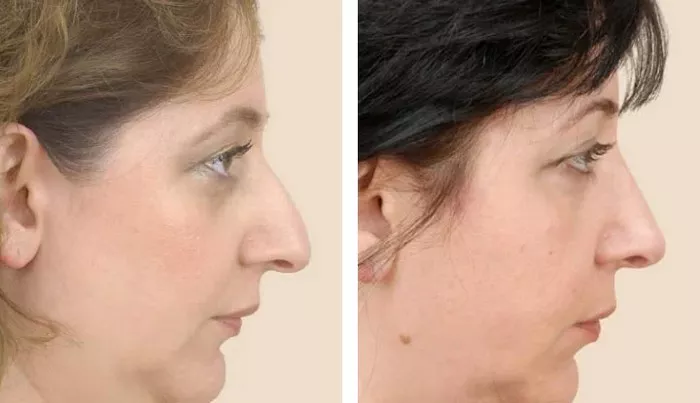Nasal polyps are non-cancerous growths that occur on the lining of the nose or sinuses. They can cause various symptoms such as nasal congestion, runny nose, facial pain, and loss of smell. In some cases, surgery may be required to remove these growths. However, patients may be hesitant to undergo the procedure due to concerns about pain and discomfort. In this article, we will explore the question: how painful is nasal polyp surgery?
What Is Nasal Polyp Surgery?
Nasal polyp surgery is a procedure that involves removing the polyps from the nasal cavity or sinuses. The surgery may be performed using a variety of methods, including endoscopic sinus surgery, which involves inserting a small camera into the nose to visualize the area and remove the polyps with micro-instruments.
How Painful Is Nasal Polyp Surgery?
The level of pain experienced during nasal polyp surgery varies from person to person. Some patients report feeling minimal discomfort, while others describe the procedure as quite painful.
Before the surgery, patients are typically given anesthesia to numb the area and prevent pain. There are two main types of anesthesia used during nasal polyp surgery: local and general. Local anesthesia numbs only the area around the surgical site, while general anesthesia puts the patient to sleep.
Patients who undergo surgery under local anesthesia may experience some discomfort or pressure during the procedure. However, they should not feel any pain. Those who receive general anesthesia will be completely unconscious and should not feel anything during the surgery.
After the surgery, patients may experience pain and discomfort as the anesthesia wears off. This can be managed with pain medication prescribed by the surgeon. Most patients report that any pain or discomfort is manageable and usually subsides within a few days to a week.
Risks and Complications
Like any surgery, nasal polyp surgery carries some risks and potential complications. These can include bleeding, infection, and damage to surrounding structures such as the eye or brain. However, these risks are generally low and can be minimized with proper surgical technique and postoperative care.
One potential complication that may contribute to pain after surgery is scarring. In some cases, scar tissue may form in the nasal passages after surgery, which can cause discomfort and difficulty breathing. However, this is not a common occurrence and can usually be managed with additional treatment.
Recovery and Postoperative Care
After nasal polyp surgery, patients should expect to take a few days off from work or other activities to rest and recover. During this time, they should avoid blowing their nose or engaging in strenuous exercise.
To minimize pain and swelling after surgery, patients may be instructed to apply ice packs to the affected area for the first 24-48 hours. They should also keep their head elevated while sleeping to reduce swelling.
In addition, patients may need to use saline nasal sprays or irrigation systems to help keep the nasal passages moist and prevent crusting. These products can also help reduce inflammation and promote healing.
Conclusion
Nasal polyp surgery is a common procedure used to remove non-cancerous growths from the nasal cavity or sinuses. While patients may experience some discomfort during and after the procedure, any pain can usually be managed with medication and proper postoperative care.
If you are considering nasal polyp surgery, it is important to discuss any concerns you may have about pain and discomfort with your surgeon. They can provide you with more information about the procedure and help you understand what to expect during and after surgery. By taking the necessary steps to prepare for surgery and following your surgeon’s instructions for recovery, you can minimize any potential pain and discomfort and achieve a successful outcome.


